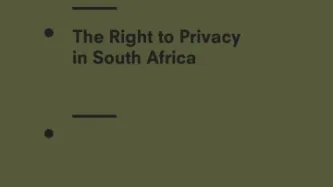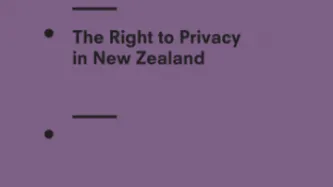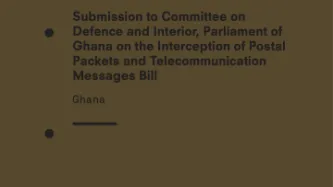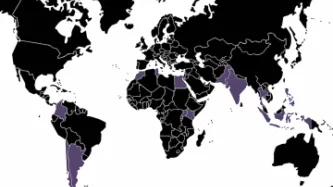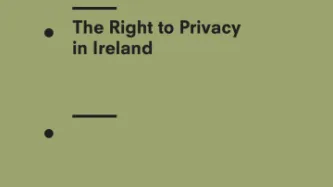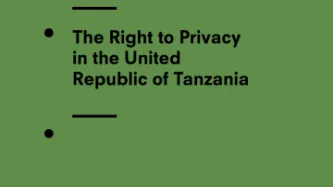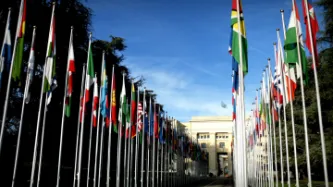Search
Content type: Advocacy
Below is Privacy International’s oral statement to the Human Rights Council 31st ordinary session, 9 March 2016 Inter-active dialogue with the UN Special Rapporteur on the right to privacy. Privacy International's written statement is here.
BEGIN
Mr. President,
Privacy International welcomes the opportunity to participate in this first inter-active dialogue with the Special Rapporteur on the right to privacy. We regret however the Rapporteur’s late submission of his report.…
Content type: News & Analysis
A new illegal spying scandal in Colombia involving the National Police has brought about the resignation of the Chief of the National Police, set off an investigation by the country’s Inspector General and brought the issue of illegal surveillance by Colombian authorities back into the national discussion.
With another institution engulfed in a spying scandal, it begs the question: just how many more of these can Colombia take before something finally changes?
Privacy International’s report…
Content type: Advocacy
Article 17 of the International Covenant on Civil and Political Rights (ICCPR) provides for the right of every person to be protected against arbitrary or unlawful interference with his privacy, family, home or correspondence as well as against unlawful attacks on his honour or reputation. Any interference with the right to privacy can only be justified if it is in accordance with the law, has a legitimate objective and is conducted in a way that is necessary and proportionate. Surveillance…
Content type: News & Analysis
This week will see the right to privacy take center stage at the UN in Geneva.
The UN Special rapporteur on the right to privacy will present his first report to the UN Human Rights Council on Wednesday 9 March. Meanwhile the Human Rights Committee will review the records of surveillance and the right to privacy of South Africa and Sweden among others.
The new Special Rapporteur on the right to privacy
A year ago the Human Rights Council established the mandate of the Special…
Content type: Advocacy
Article 17 of the International Covenant on Civil and Political Rights (ICCPR) provides for the right of every person to be protected against arbitrary or unlawful interference with his privacy, family, home or correspondence as well as against unlawful attacks on his honour or reputation. Any interference with the right to privacy can only be justified if it is in accordance with the law, has a legitimate objective and is conducted in a way that is necessary and proportionate. Surveillance…
Content type: Advocacy
Article 17 of the International Covenant on Civil and Political Rights (ICCPR) provides for the right of every person to be protected against arbitrary or unlawful interference with his privacy, family, home or correspondence as well as against unlawful attacks on his honour or reputation. Any interference with the right to privacy can only be justified if it is in accordance with the law, has a legitimate objective and is conducted in a way that is necessary and proportionate. Surveillance…
Content type: Advocacy
Privacy International, Civil Rights Defenders and DFRI note Sweden’s written replies to the list of issues in relation to Swedish laws, policies and practices on interception of personal communications.
The following comments are based on the analysis of the Swedish legislation, as well as policies and practices on surveillance by Privacy International, Civil Rights Defenders and DFRI.
Content type: Advocacy
Privacy International, Right2Know, and the Association for Progressive Communications (hereinafter “the organisations”) note the written replies by the government of South Africa to the list of issues on South Africa’s laws, policies and practices related to interception of personal communications and protection of personal data.
The organisations have on-going concerns on the practices of surveillance by South African intelligence and law enforcement agencies. In this submission, the…
Content type: Advocacy
Privacy International notes New Zealand’s written replies to the list of issues prior to reporting in relation to the New Zealand’s laws, policies and practices related to interception of personal communications.
A review of the security and intelligence legislation is currently underway in accordance with the Intelligence and Security Committee Act. It is expected that the Parliament will consider the review in 2016. Hence this represents a significant opportunity to amend the current…
Content type: Advocacy
Summary of PI’s and ARTICLE 19’s joint submission to the Defense and Interior Committee of the Ghana Parliament calling for it to abandon rushing through a controversial new surveillance Bill.
Content type: Long Read
Today, Privacy International is publishing the result of a global effort to benchmark surveillance policies and practices in the countries that are part of the Privacy International Network. We’re calling it the ‘State of Surveillance’.We designed a survey of questions based on some key issues: statistics about the communications infrastructure of the country; what civil society organisations and groups that analyse privacy issues; the international and domestic legal framework regulating…
Content type: Press release
Privacy International today publishes a new investigation, based on exclusive documents, exposing the sale of European surveillance technologies to a secret unit of Egypt's intelligence infrastructure.
The Technical Research Department (TRD) is an independent unit within the General Intelligence Service (GIS), accountable only to the President. According to sources, the TRD has the biggest budget for surveillance technologies of any Egyptian government body. Such large public expenditure…
Content type: Advocacy
This stakeholder report is a submission by the Hungarian Civil Liberties Union (HCLU) and Privacy International (PI). HCLU is a human rights organisation that takes stand against undue interference and misuse of power by those in positions of authority. PI is a human rights organisation that works to advance and promote the right to privacy and ght surveillance around the world. HCLU and PI wish to bring concerns about the protection and promotion of the right to privacy in Hungary before…
Content type: Advocacy
This stakeholder report is a submission by Privacy International (PI) and Digital Rights Ireland Ltd. (DRI). PI is a human rights organisation that works to advance and promote the right to privacy and ght surveillance around the world. DRI is an Irish group dedicated to defending civil, legal and human rights in a digital age. PI and DRI wish to bring concerns about the protection and promotion of the right to privacy in Ireland before the Human Rights Council for consideration in Ireland…
Content type: Advocacy
This stakeholder report is submitted by the Tanzania Human Rights Defenders Coalition, the Collaboration on International ICT Policy in East and Southern Africa and Privacy International (PI). PI, THRDC and CIPESA wish to bring concerns about the protection and promotion of the right to privacy in the United Republic of Tanzania (thereafter “Tanzania”) before the Human Rights Council for consideration in its upcoming review.
Content type: Advocacy
This stakeholder report is a submission by Privacy International (PI) and Thai Netizen Network (TNN). PI is a human rights organisation that works to advance and promote the right to privacy and ght surveillance around the world. TNN is a Bangkok-based organisation that works to promote human rights in Internet policy and support the work of human rights defenders in digital environment. PI and TNN wish to to bring concerns about the protection and promotion of the right to privacy in…
Content type: Press release
Today’s report by the Joint Committee on the Investigatory Powers Bill is the third committee report that concludes that the Home Office has failed to provide a coherent surveillance framework.
The Joint Committee on the Investigatory Powers Bill today published a 198 page report following a short consultation period between November and January. Their key findings are that:
- the definitions in the bill need much work, including a meaningful and comprehensible…
Content type: News & Analysis
The problems with thematic warrants and why they should be removed from the UK Government’s Investigatory Powers Bill
We currently have the rare opportunity to scrutinise and debate the powers that law enforcement, the security and intelligence agencies and public bodies should have to interfere with our private communications, our devices and our digital lives. These powers are being enshrined and expanded upon in the draft Investigatory Powers Bill (IP Bill), currently under scrutiny by the…
Content type: News & Analysis
In 2015 the United Nations' human rights mechanisms significantly increased their capacity to monitor and assess states' compliance with their obligations around the right to privacy. Notably, the Human Rights Council established the mandate of the Special Rapporteur on the right to privacy, filling a significant gap in the international human rights protection system. Meanwhile, the Human Rights Committee put surveillance laws and practices in a range of countries under close scrutiny, making…
Content type: News & Analysis
Sometimes it takes an unexpected stranger to remind you what you have, and what you are at risk of losing. Roman Zakharov, a Russian publisher who challenged Russia’s surveillance legislation, is that stranger for many Brits and Europeans. The Grand Chamber of the European Court of Human Rights judgement on Friday 4 December 2015 was remarkable, not because it tore up the rule book on the jurisprudence surrounding state surveillance in the Council of Europe, but because it followed…
Content type: News & Analysis
Internet Connection Records are a new form of communications data created by the Investigatory Powers Bill at Parts 3 and 4. They constitute an unlawful interference with privacy with the ability to provide a highly detailed record of the activities of individuals, profiling their internet habits.
Clause 62 of the Investigatory Powers Bill (“IP Bill”) permits a wide range of public authorities to collect Internet Connection Records, however throughout debates on this highly controversial new…
Content type: News & Analysis
This guest post was written by Nighat Dad and Adnan Chaudhry of Digital Rights Foundation.
It is the role of the state to protect its citizens from threats to their life and liberty. But in protecting its citizens, the state’s own aims cannot be counterproductive and erode the security found in rights like privacy and freedom of expression that are vital to a democratic system.
However, it has too often been the case that governments will pursue and enact legislation that provides more…
Content type: Long Read
Written by Eva Blum-Dumontet
A recent case of lèse-majesté in Thailand (speaking ill of the monarchy) is a worrying example of how Western companies do not just work with governments that fall short of international human rights standards, but can actually facilitate abuses of human rights.
Our investigation on the trial of Katha Pachachirayapong — accused of spreading rumours on the ill-health of the King Bhumibol Adulyadej, thereby causing sharp falls in the Thai stock market — reveal the…
Content type: News & Analysis
The UK Government introduced a draft surveillance bill on Wednesday – the innocuously named 'Investigatory Powers Bill'. Trumpeted as 'world leading' by the Home Secretary, the only sense in which this is true is that other Governments around the world will now also seek a mandate for mass surveillance and hacking.
Until recently, the idea that a Government agent could hack a mobile phone and turn on its camera and microphone to bug a conversation in a room was the realm of science fiction, or…
Content type: News & Analysis
On legal reform
"RIPA, obscure since its inception, has been patched up so many times as to make it incomprehensible to all but a tiny band of initiates. A multitude of alternative powers, some of them without statutory safeguards, confuse the picture further. This state of affairs is undemocratic, unnecessary and – in the long run – intolerable." [E.S. 35]
This report is confirmation of the pressing need for wholesale reform of Britain's surveillance laws. Mr Anderson is…
Content type: News & Analysis
With powers to snoop on our communications that are unprecedented anywhere in the world, it is essential the Investigatory Powers Bill doesn't let politicians decide who is spied on.
The bill, if it is passed, aims to give the police and intelligence agencies sweeping powers to scoop up our emails, phone calls and text messages; and access details about when, where and with whom we communicate; and even hack into our computers and smartphones. At Privacy International, we have many concerns…
Content type: News & Analysis
This is a guest piece. It does not necessarily reflect the views or position of Privacy International.
In 1997, plans for a Civil Identification Registry (RIC) were signed into law in Brazil, promising to unify the 27 regional identification registries into a centralized federal one by 2020. The law, which was only enacted in 2010, continues to face obstacles to its implementation, but in 2014 there was a renewed wave of support for the project from the Ministry of Justice…
Content type: News & Analysis
Despite Wednesday's publication of the Investigatory Powers Bill being trailed as world leading legislation that would balance security and privacy, what the Government is actually seeking is a mandate for mass surveillance. This is a new Snoopers' Charter and we must oppose many of its most virulent elements.
The true debate on surveillance can now begin. After years of downplaying, obscuring, and denying the Snowden revelations, the Government has finally joined the conversation about the…







